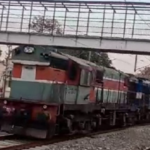Zelensky says 31,000 troops killed since Russia’s full-scale invasion
Volodymyr Zelensky has disclosed that 31,000 Ukrainian soldiers have lost their lives since Russia launched a full-scale invasion. The Ukrainian president stated that he refrained from providing the number of wounded soldiers to avoid aiding Russian military strategizing.
Typically, Ukrainian authorities do not release casualty figures publicly, with estimates from other sources often exceeding official numbers. Zelensky’s announcement followed comments from the defense minister, who lamented delays in Western aid, attributing them to loss of lives and territory.
Zelensky clarified that the updated death toll was in response to Russia’s inflated figures, emphasizing that each loss of life was deeply significant for Ukraine. He also acknowledged the loss of tens of thousands of civilians in Russian-occupied areas, though the exact toll remains unknown.
While it is uncommon for Ukraine to disclose military casualties, alternative estimates suggest higher figures. US officials previously cited 70,000 Ukrainian soldiers killed and up to 120,000 injured. Regarding Russian losses, Zelensky mentioned 180,000 fatalities and numerous injuries among Russian troops.
Despite collaborative efforts by BBC Russian and Mediazona to identify over 45,000 deceased Russian service members, the total count is presumed to be higher. In February, the UK’s defense ministry estimated 350,000 Russian troops killed or wounded.
Zelensky’s remarks came amid criticism from Defense Minister Rustam Umerov regarding delays in Western military aid, which he deemed detrimental to Ukraine’s efforts to counter Russian aggression. Umerov highlighted the adverse impact of supply shortages on Ukraine’s combat capabilities, citing setbacks in its confrontation with Russia.
Concerns about the EU’s failure to fulfill its commitment to deliver artillery shells to Ukraine by March were raised by Germany in November. By January, the EU acknowledged that only a portion of the promised artillery shells would reach Ukraine by the deadline, with full delivery not expected until 2024.
Zelensky underscored the critical role of weapons supply in Ukraine’s anticipated counter-offensive, citing it as a key factor behind delays in initiating the operation last year.
That counter-offensive largely failed – one of several setbacks Kyiv has faced after some early successes in repelling Russia after it invaded in February 2022.
Mr Zelensky also suggested on Sunday that plans for the counter-offensive were leaked to Russia ahead of time.
Last week, it was announced that Ukrainian troops had withdrawn from the key eastern town of Avdiivka – Moscow’s biggest win in months.
Mr Zelensky also blamed this partly on faltering Western weapon supplies.
The Biden administration, meanwhile, has said the hold-up in Congress of a $60bn aid package for Ukraine contributed to the fall of the town.
Western leaders traveled to Kyiv on Saturday in a show of solidarity with Ukraine as the country marked two years since Russia’s full-scale invasion.
There, it was announced that Italy and Canada had signed security deals with Ukraine – bolstering support until the country could join NATO.
Canada’s deal included more than three billion Canadian dollars (£1.7bn) in financial and defense aid.
It is not only Ukraine that is having trouble resourcing its military activities. Russia is also struggling to provide ammunition and weapons, according to Western officials.
“Russia’s domestic ammunition production capabilities are currently insufficient for meeting the needs of the Ukraine conflict,” a Western official claimed.
They added that Moscow has been able to increase its supply only by seeking out alternative sources of ammunition and weapons, which do not offer a long-term solution.


